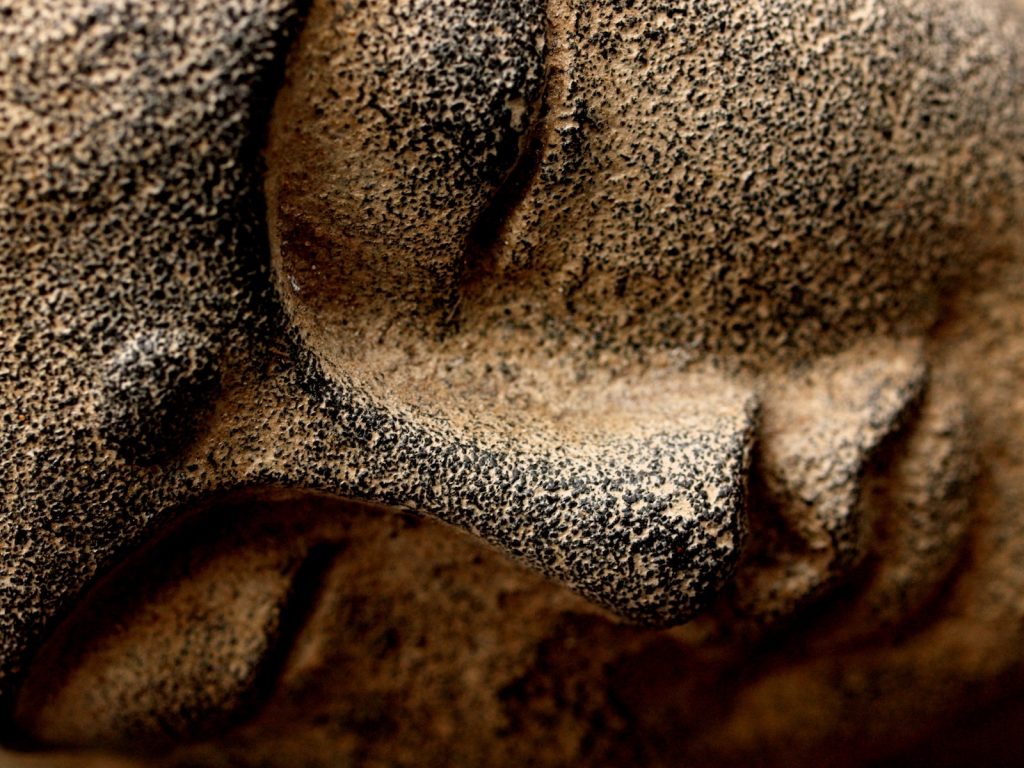There are different ways to think about lovingkindness, metta in Pali, or maitri in Sanskrit. We can think of it as a deep care for and active interest in others, which allows us to “make place” for them in our mind, as French Islamic scholar Louis Massignon spoke of compassion. We understand where others are and acknowledge that they want the same thing we want: to be happy and at peace. Then, we nourish this type of care because we recognize that our happiness is completely intertwined. My own well-being, safety, and satisfaction are all completely dependent on yours, which means I cannot be fully happy unless you are happy too. From this perspective, it’s just as important that I take care of you than I take care of me. In fact, lovingkindness helps me to see that “me” and “you” are only provisional labels, and that the truth is we’re much closer than we realize.
Another way to think about lovingkindness is as the absence of self-exclusivity. As one Buddhist teacher said, “Believing in a separate self is misappropriation of public property.”
There’s no such thing as an individual self—only the idea of a singular, separate, and fixed individual whose needs conflict with mine.
It doesn’t take much to see that our possessiveness and territoriality keep us in a constant state of anxiety. Afraid of losing what we think we own, we protect it at all costs, but this self-protection is in direct opposition to lovingkindness, an attitude that is open, loving, and trusting. That’s why, in the path of purification, Buddhaghosa, the 5th-century Indian monk and philosopher, said that the “near enemy” of lovingkindness is greed that masquerades as love. We keep someone close, not because we care about them, but because there’s something we’re looking to get. This is when our relationships become transactional; our care, conditional. The “far enemy” of lovingkindness is ill will. It’s the wish—subtle or overt—that the other be harmed in some way, so we can remain safe. To practice lovingkindness, therefore, means to release into the trust that we have and are everything we need, and that our energy is better spent in other ways than the constant management of our fear.
Cultivating lovingkindness we become unstoppable in the face of fear. We love our way through the fear.
Following this, a third way to think of lovingkindness is as the absence of fear—the fear that whatever it is I’m holding on to—my life, my wealth, my happiness, my health—will go away. It’s not that this fear is irrational. We could lose everything to environmental collapse, to war, to illness, to violence, or death. We could lose it to someone else taking what we want or need. Living with the possibility of losing our ground leads us to be stingy, judgmental, or harsh. It leads us to not be loving or kind. So lovingkindness entails working with and relinquishing that fear, because we cannot be tight and tender at the same time. We can’t be afraid and simultaneously loving. Actually—actually, we can. Because it’s not that fear is absent in lovingkindness. It’s simply that we don’t let it stop us. Cultivating lovingkindness we become unstoppable in the face of fear. We love our way through the fear.
I will be afraid and I will love anyway, because it’s only through getting closer to what I fear that I will be free.
May you be filled with happiness, we wish for another. You, who sometimes withhold your love. You, who have hurt me through your confusion or your disregard. You, who don’t even know who I am. May you be filled with happiness, now and always. This is an incredibly powerful teaching. It turns our usual way of seeing things on its head. It says, I will care for you at a very basic level because this kind of caring will lead to the happiness we’re both looking for. It says, I will be afraid and I will love anyway, because it’s only through getting closer to what I fear that I will be free.
Little by little, through the practice of extending lovingkindness to ourselves and others, we release our hold on the self. Letting go of our exclusivity, kindness arises naturally out of an attitude of unprotectedness.
Finally, we can think of lovingkindness in terms of humility and gratitude. The more we open, the more we soften, the more we realize how much we don’t know and how little control we have over what we think we do know. But far from being a liability, this is a blessing. All the goodness we’ve experienced in our lives has been the result of a combination of factors and the many varied actions of others. No matter who we are, no matter how hard we’ve worked, not a single one of us has become who we are on our own. Knowing this helps to put things in perspective and encourages us to cultivate gratitude for all the benefit we’ve received.
In the end, we practice lovingkindness, not because we think it’s a good or noble thing to do—although it is—but because lovingkindness is the very nature of who we are. It’s the very fabric of our being.
This article was originally published on July 9, 2023.
Thank you for subscribing to Tricycle! As a nonprofit, we depend on readers like you to keep Buddhist teachings and practices widely available.

